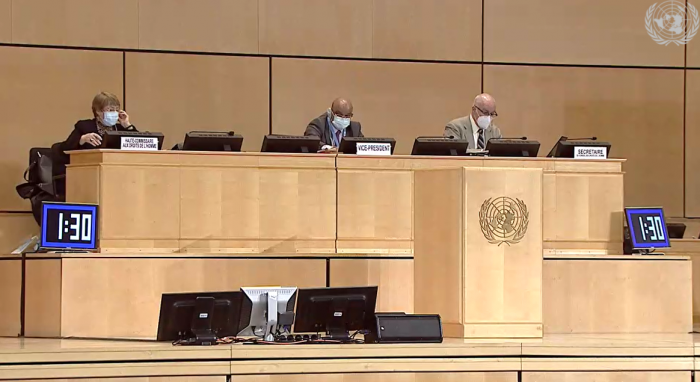United Nations High Commissioner for Human Rights, Michelle Bachelet, arrived on Wednesday 19 July to Venezuela for a 3-day visit. On Thursday afternoon, the High Commissioner, human rights organizations and multiple victim groups met. In this space of one hour, 26 spokesmen were able to make requests to the High Commissioner. 20 of these interventions are registered in this document, which represents an overview of the activists’ demands for the human dignity of the country in a context characterized by the lack of democracy, increase in poverty and forced migration.
Below is one of such interventions.
As my colleagues have reported, the Complex Humanitarian Emergency that Venezuelans suffer gets worst as days go by.
The violation of rights that has stemmed from a Complex Humanitarian Emergency, has gotten worse since the unconstitutional installation of the Constituent Nacional Assembly (ANC) and the electoral fraud of May 20th, 2018.
Currently Venezuelans have only two option, see themselves forced to leave the country or have to stay and protest against a system that systematically oppresses and violates their rights.
The ones who stay in Venezuela don’t do it with crossed arms; instead they’ve been persistent in demanding a life with dignity, freedom and democracy.
To give you an idea, in the last 8 years the OVCS has managed to document 69,502 protests
Just in the first 5 months of 2019, 9,715 have been registered in the entire country, equal to an average of 65 per day. The main demands have been for guarantees of quality basic services (clean water, electricity, domestic gas), work rights, nutrition, health and political change in the country.
Maduro´s regime has tried to stop, appease the large and peaceful protests with a policy of repression, mainly executed by extermination groups such as FAES, Paramilitary Collectives, National Guard and other police groups. Only this year, the Observatory of Unrest and the NGO Provea have documented and denounced the murder of 60 protestors and 6 people who were detained in their homes and executed extrajudicially for participating in protests or organizing them.
This said, we share our concerns about the possibility of an accelerated rise of protests in the country, taking into account that the citizens don’t have the answers nor institutional mechanisms for the resolution of their problems. We could register other records of protests in 2019. Another serious element is that facing a lack of answers and consolidation of repression and criminalization, in the next few days we could observe de radicalization of the protests with extreme measures like hunger strikes, bloodshed or protests with violent actions.
To conclude, esteemed High Commissioner, we want to solicit in the framework of this historic visit, that you demand to put an end to the serious violations of human rights committed by the regime of Nicolas Maduro.




